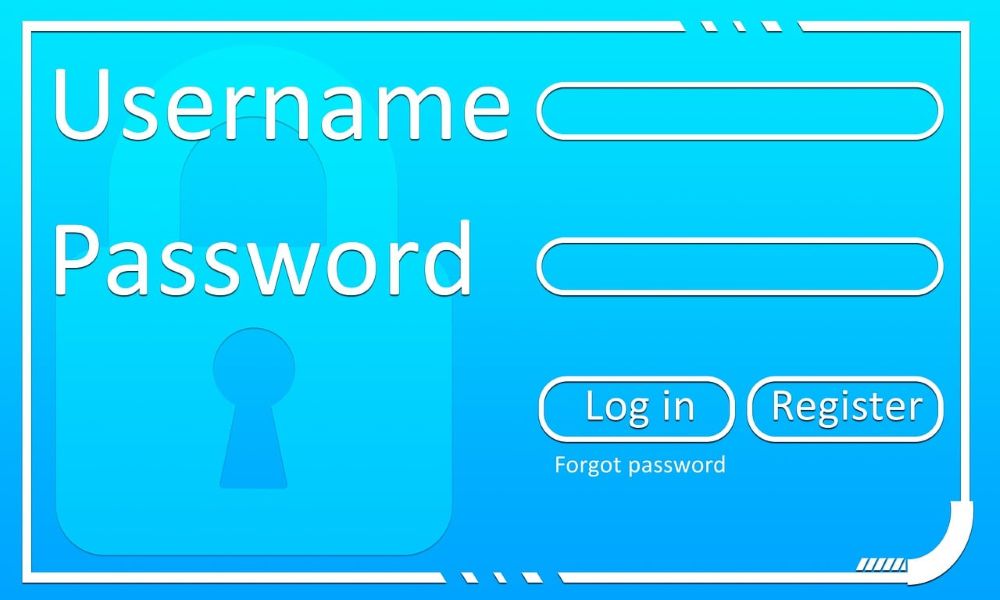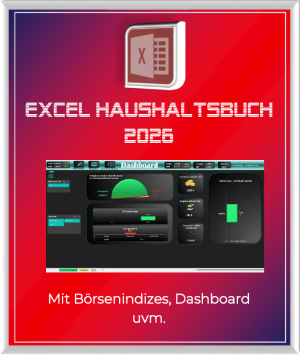Put an end to password chaos: Why a password manager is important
Question: How many online accounts do you have? 50? 100? 200? And now, be honest: How many different passwords do you use for them?
If you’re like most people, the answer is: “Too few.” We use Summer2025! for five different logins. We append an ! or a 1 to our default password. Or, even worse, we let the browser save our passwords—unencrypted and accessible to anyone who briefly gets hold of our computer.
For years, antivirus software was considered the be-all and end-all of digital security. But today, the biggest threat is no longer the virus that cripples your PC. It’s the theft of your digital identity through stolen passwords. And that’s precisely why a password manager is the most important security tool you can install today.

The problem: Data leaks and “credential stuffing”
Your password can be incredibly strong – but if the service you use it for gets hacked (e.g., an online shop or a forum), your password ends up on the dark web. That’s a “data leak.”
The real problem starts now: Hackers take this stolen email/password combination and automatically try it on all the other major services – Amazon, PayPal, Google, Netflix. This is called “credential stuffing.” If you use the same password everywhere, it’s like having one key to your front door, your car, your office, and your safe. Once stolen, everything is open.
The solution: The digital vault
A password manager is a highly encrypted digital vault for your login credentials. The concept is ingeniously simple:
- One master password: You only need to remember a single, very strong master password. This one password is the key to your vault.
- Everything else is saved: The manager saves all your other logins.
- It generates security: For each new service (e.g., the new online shop), the manager generates an extremely strong, random password (e.g., 8$k!zP#qG&v@fT9). You don’t have to remember it.
- It autofills: When you visit the website, the manager recognizes the page and automatically fills in your login details (after you enter your master password).
Why is a password manager more secure than browser-based password storage?
Google’s or Firefox’s built-in password managers are convenient, but not designed for security. A password manager, on the other hand, is a fortress. Your data is encrypted before it leaves your device (zero-knowledge principle). Even the manager provider (e.g., Bitwarden, NordPass, 1Password) cannot read your passwords.
Security + Convenience
A password manager solves the two biggest security problems at once: It eliminates weak and reused passwords. And as a bonus, it makes your life infinitely more convenient, since the tedious typing of passwords on your phone and computer is no longer necessary.
In combination with 2-factor authentication (2FA) you create a security layer that is practically insurmountable for most attackers.
Overview: The best password managers of 2024/2025
| Password manager | Pricing model | Platforms | Pro | Contra | Link |
|---|---|---|---|---|---|
| Bitwarden | Best free plan; Premium (very cheap) | all (Win, Mac, iOS, Android, Web, Browser) | Open-source (high trust); excellent free plan (unlimited passwords & devices); secure & reliable. | The user interface is functional, but somewhat simpler than that of its premium competitors. | zum Tool |
| 1Password | Premium (Abo) | all (Win, Mac, iOS, Android, Web, Browser) | Modern and very simple; from the makers of NordVPN (highly trusted); uses the modern XChaCha20 protocol; “Data Breach Scanner”. | No true free version anymore (only a 14-day trial). Considered one of the most expensive providers. | zum Tool |
| NordPass | Windows, Mac | all (Win, Mac, iOS, Android, Web, Browser) | Modern & sehr einfach; von den Machern von NordVPN (hohes Vertrauen); nutzt modernes XChaCha20-Protokoll; “Data Breach Scanner”. | The free plan is severely limited (e.g., login only on one device at a time). | zum Tool |
| Keeper | Chrome, Firefox, Edge | all (Win, Mac, iOS, Android, Web, Browser) | High security & extras; “KeeperChat” (secure messenger); very popular in the business sector; good family plan. | Rather expensive in comparison; the free plan is practically just a local vault without synchronization. | zum Tool |
| Google Passwort-Manager | Free (with a Google account) | Android, Chrome-Browser, (limited in iOS via Chrome) | Perfectly integrated into Android & Chrome; very convenient; good warnings about data leaks directly in the browser. | Heavily tied to Google/Chrome; not as flexible or platform-independent as a dedicated manager. | zum Tool |
| Apple iCloud-Schlüsselbund | Kostenlos (in Apple-Geräten) | Nur Apple (Mac, iOS, iPadOS); (limitiert via iCloud für Windows) | Perfekt ins Apple-System integriert; füllt Passwörter & 2FA-Codes automatisch aus; unterstützt Passkeys hervorragend. | Does not work outside the Apple ecosystem (e.g., on Android or in Firefox/Chrome on Mac). | – |
How to choose the right one for you:
- For most users (the best compromise): Bitwarden. It offers basically everything you need for free and is considered extremely secure because it’s open-source.
- For the best look and feel and for families: 1Password. If a polished interface and ease of use (especially for family sharing) are important to you and you’re willing to pay for it.
If you’re already part of the ecosystem: If you exclusively use Apple devices or exclusively Android/Chrome, the built-in managers (Apple Keychain / Google Password Manager) are a very convenient and “good enough” solution. However, as soon as you mix, for example, a Windows PC and an iPhone, a dedicated manager like Bitwarden or 1Password will be superior.
Conclusion
Distraction blockers are nothing to be ashamed of. They’re a smart adaptation to a work environment that isn’t optimized for human focus. They don’t fight your lack of willpower, but rather the multi-billion-dollar industry vying to steal your attention.
If you feel constantly distracted and losing sight of your actual goals, a distraction blocker might be the simplest and most effective step toward regaining control of your time.
Beliebte Beiträge
Create a Word letter template with form fields
Create a professional DIN 5008 letter template with form fields and drop-down lists in Microsoft Word, and write letters as easily as you would fill out a form.
Protect Word documents from editing
Protect your documents in Microsoft Word from unauthorized editing or block access completely.
Show and remove duplicate entries in Excel | Tutorial
We explain how to remove duplicate entries from Excel. And also how you can only display duplicate entries in Excel but not delete them immediately in order to decide on a case-by-case basis.
Custom Formatting Excel – Number Format Codes Excel
We use a practical example to explain the importance and possible uses of custom formatting in Excel. Number format codes in Excel are not rocket science!
How to create a dynamic table in Excel
This is how you conveniently create a dynamic table in Excel and have it automatically carry out calculations.
Use macros correctly in Excel
Almost everyone has heard of the term "macro" in the context of Excel, and perhaps has shied away from it because it sounds like a rather complicated affair for which you have to deal with Excel programming.

































